2286 RESULTADOS ENCONTRADOS
COC firma acordo inédito com universidade francesa
14/06/2017A Casa de Oswaldo Cruz (COC/Fiocruz) e a Ecole des Hautes Études en Sciences Sociales (Escola de Estudos Avançados em Ciências Sociais – EHESS) firmaram convenção inédita de cotutela internacional. A parceria com a instituição francesa sediada em Paris permitiu a cotutela (parte do estudo foi feito na França) para o doutorado de Danielle
COC promove palestra sobre tecno parto
12/06/2017No dia 22 de junho, às 14 h, a doutora em Antropologia Social e professora da Universidade Federal da Bahia Cecília Mccallum ministra a palestra Tecno Parto: parto tecnocrático na visão de moradores da “roça”: a transição para um parto hospitalar numa perspectiva etnográfica. A apresentação ocorre no Anfiteatro A do Centro de Estudos Olinto
Mestrado em Divulgação Científica 2017: calendário de entrevistas
09/06/2017A Casa de Oswaldo Cruz (COC/Fiocruz) divulga o resultado parcial do processo seletivo para o mestrado em Divulgação da Ciência, Tecnologia e Saúde, referente à prova de idiomas, bem como o calendário de entrevistas.
‘Aedes: que mosquito é esse?’ é tema de exposição na Casa da Ciência, no Rio
09/06/2017O Museu da Vida da Fiocruz, em parceria com a Sanofi, inaugura para o público, em 14 de junho de 2017, a exposição interativa Aedes: que mosquito é esse?, sobre o mosquito transmissor da dengue, zika e chikungunya. Com concepção, organização e montagem do Museu da Vida e correalização da Casa da Ciência da UFRJ,
Curso de inverno sobre Oswaldo Cruz prorroga inscrições
06/06/2017Os interessados em conhecer mais sobre Oswaldo Cruz e as questões em torno da vida e obra do cientista responsável pelas primeiras campanhas bem-sucedidas de combate à febre amarela, têm agora até o dia 04 de julho para entregar a ficha de inscrição, um quilo de alimento não perecível e os documentos requeridos na secretaria
COC abre inscrições para o curso ‘Instituições de Memória e Documentação’
02/06/2017A Casa de Oswaldo Cruz (COC/Fiocruz) abre as inscrições para o curso livre ‘Instituições de Memória e Documentação’ de 5 a 14 de junho. Os interessados devem enviar currículo e carta de intenção para o e-mail secadcoc@fiocruz.br. As aulas acontecem entre 26 e 30 de junho, das 9h às 12h30, na Oficina-Escola de Manguinhos, no
Fiocruz promove seminário sobre arquivos das ciências e da saúde
31/05/2017O seminário Arquivos das Ciências e da Saúde: Políticas, Métodos e Práticas será promovido pela Casa de Oswaldo Cruz (COC/Fiocruz), no próximo dia 7 de junho. O encontro – como parte das celebrações pelo Dia Internacional dos Arquivos, no dia 9 – discutirá temas como a gestão de documentos e arquivos, incluindo a digitalização do
Museu da Vida estreia exposição Oceanos
29/05/2017Que tal um mergulho nos oceanos, este mundo que cobre 70% da Terra? Apesar de exercerem um papel fundamental para preservar a vida, o que se conhece atualmente sobre os oceanos representa menos de 1% da superfície que ocupam. A exposição Oceanos, que estreia no Museu da Vida em 2 de junho, às 14h, permitirá
Mestrado em Patrimônio 2017: resultado parcial
29/05/2017A Casa de Oswaldo Cruz (COC/Fiocruz) divulga o resultado parcial do processo seletivo para o mestrado profissional em Divulgação da Ciência, da Tecnologia e da Saúde, referente às etapas II e III (prova escrita e avaliação de pré-projeto).
Mestrado em Divulgação Científica 2017: resultado parcial
23/05/2017A Casa de Oswaldo Cruz (COC/Fiocruz) divulga o resultado parcial do processo seletivo para o mestrado em Divulgação da Ciência, Tecnologia e Saúde, referente às etapas II e III (prova escrita e avaliação de pré-projeto).





